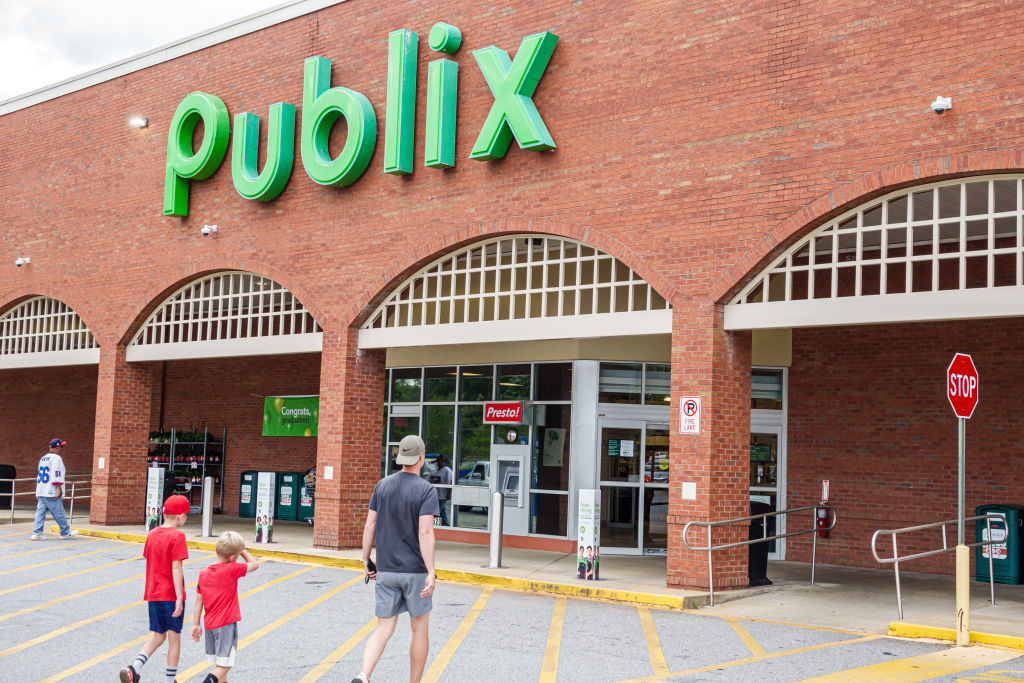According to a viral post by The Other 98%, a popular left-wing Facebook page with more than 7.1 million followers, grocery prices are high because companies like Kroger and Publix are bringing in increased profits.
“Kroger’s profit was up 35.6% from ’22 to ’23. Publix was up 49% from ’22 to ’23,” the page posted last week. “That’s why Food prices are so high.”
The post rehashes the claim that inflation has been driven primarily by corporate greed and the pursuit of profits. (Earlier this month, The Dispatch Fact Check addressed a similar claim.)
Regardless of the effect of corporate profit maximization on inflation, The Other 98%’s post is factually inaccurate: Publix’s net income plateaued in 2023 and Kroger’s decreased.
In corporate accounting, net income—also called net earnings—refers to a company’s bottom line, meaning the total amount of money a business makes after subtracting all costs incurred during the year. In 2023, Publix’s net income increased only from $4.05 billion to $4.09 billion year-over-year, or a 0.1 percent increase. While the company does report a 49 percent increase in net income in its 2023 annual report, this occurs only when an increase in the value of equity securities held by the company is included. This fair value adjustment in equity pricing is not reflective of the profits Publix makes from its actual business operations, however, which the company emphasizes in its report. “The Company excludes the impact of the fair value adjustment since it is primarily due to temporary equity market fluctuations that do not reflect the Company’s operations,” the report reads. “The Company believes this information is useful in providing period-to-period comparisons of the results of operations.”
Operating profit, which measures the net income made only from a company’s core business operations, provides a more accurate picture of actual changes in Publix’s profitability. In 2023, the company recorded an operating profit of $4.47 billion, down from $4.76 billion in 2022. Its operating profit as a percentage of sales—which measures how much profit a business makes on average per dollar of sales—saw a similar decrease from 8.7 percent in 2022 to 7.8 percent in 2023. In its report, Publix credits inflation not as a cause of increased profits, but as a direct contributor to its decreased profitability. “The decrease in gross profit as a percentage of sales for 2023 as compared with 2022 was primarily due to the impact of inflation on product costs which was not passed on to customers, increased shrink and the relative sales growth of pharmacy products, partially offset by the decrease in distribution costs,” it reads.
Kroger’s financial statements report an even steeper decline in 2023 profits. The company recorded a 3.6 percent decrease in net income 25 percent decrease in operating profits during 2023. Like Publix, its operating profit as a percentage of sales also decreased, falling from 2.78 percent in 2022 to 2.06 percent in 2023.
If you have a claim you would like to see us fact check, please send us an email at factcheck@thedispatch.com. If you would like to suggest a correction to this piece or any other Dispatch article, please email corrections@thedispatch.com.










Please note that we at The Dispatch hold ourselves, our work, and our commenters to a higher standard than other places on the internet. We welcome comments that foster genuine debate or discussion—including comments critical of us or our work—but responses that include ad hominem attacks on fellow Dispatch members or are intended to stoke fear and anger may be moderated.
With your membership, you only have the ability to comment on The Morning Dispatch articles. Consider upgrading to join the conversation everywhere.